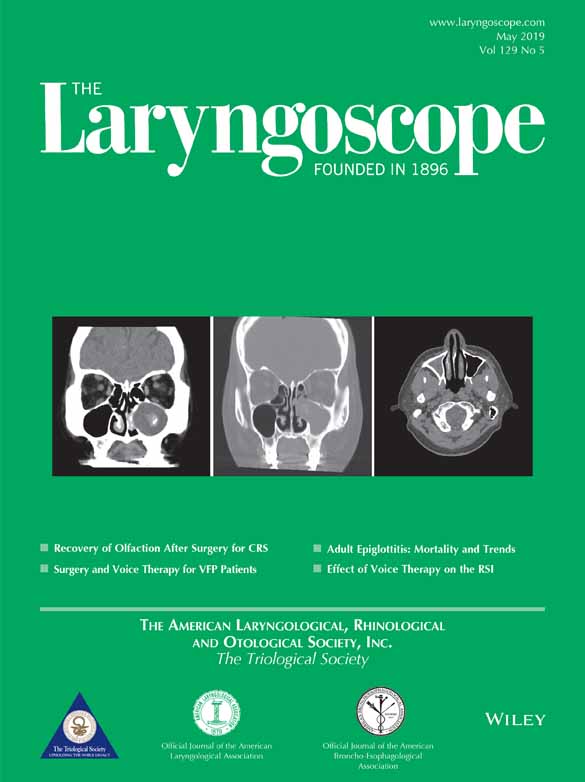Maternity and paternity leave in otolaryngology residency training in the United States
Editor's Note: This Manuscript was accepted for publication May 16, 2018.
The authors have no funding, financial relationships, or conflicts of interest to disclose.
Abstract
Objectives/Hypothesis
This study evaluates the existence and nature of maternity and paternity leave policies for residents during otolaryngology training. The study sought to survey program directors (PDs) on the impact of parental leave.
Study Design
Cross-sectional survey.
Methods
An electronic survey was sent to 103 otolaryngology residency PDs. A link to a 10-page, 30-question survey was provided. Descriptive statistics and comments were collected.
Results
Forty-one respondents (39.8%) completed the survey, all of whom were from university-based programs. Programs from the Midwest (n = 11, 26.8%), Northeast (n = 12, 29.3%), South (n = 12, 29.3%) and West (n = 6, 14.6%) were represented. Sixteen (42%) programs reported having a written formal maternity leave policy for trainees, and 13 (32%) programs had a paternity-specific policy. Four programs reported using short-term disability, whereas 11 programs reported using the Family Medical Leave Act to accommodate parental leave. Policies primarily followed the Accreditation Council for Graduate Medical Education and American Board of Otolaryngology guidelines, with factors such as clinical duties and call schedules left to the programs' discretion. Although the majority of PDs (56%) reported support of residents who planned to become pregnant during training, many expressed concerns regarding the burden on co-residents and the difficulty of fulfilling training obligations for the resident taking leave.
Conclusions
Many institutions do not have parental leave policies and logistics regarding leave are left to the discretion of individual programs. Surveyed PDs addressed the challenges of becoming a parent during training and the potential burden placed on the program when trainees take leave.
Level of Evidence
4 Laryngoscope, 129:1093–1099, 2019




